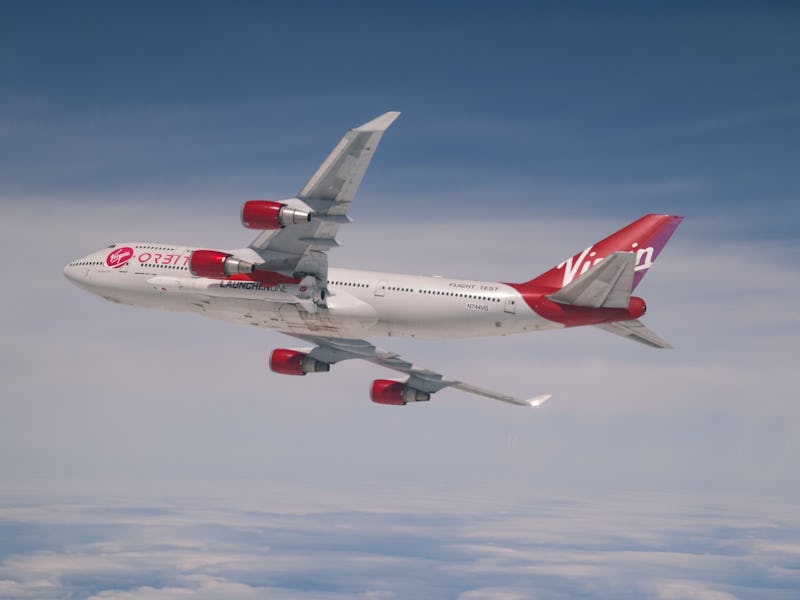Virgin Orbit: Elon Musk responds to firm's failed rocket mission
The rocket launching firm failed in its big debut for the LauncherOne rocket.

Virgin Orbit, the Virgin Galactic spin-off aiming to make its grand debut Monday, has failed in its first major mission. But Elon Musk, the SpaceX CEO with experience in orbital flights, suggested after the bad news that it's not a show-stopping moment.
The firm was planning to attempt an orbital launch with the LauncherOne two-stage rocket, the first outing for this new vehicle. The plan was to send up a Boeing 747 dubbed Cosmic Girl with LauncherOne attached to the underside. It would then launch the rocket, deploy a test payload and de-orbit.
Unfortunately, the firm explained in a press release, it didn't quite go to plan. Pre-launch procedures all went according to plan. The plane took off from Mojave Air and Space Port as expected, and it did reach the Pacific Ocean. The firm then claims it completed "clean telemetry lock from multiple dishes, a smooth pass through the racetrack, terminal count, and a clean release." With the LauncherOne released from Cosmic Girl, it successfully managed to ignite its own engine – but then an anomaly occurred, and the flight was safely terminated.
Although it ended in failure, the mission is still a remarkable step forward for Virgin Orbit. As outlined before the mission by the company, it marks the first time anyone had ignited the engine on an orbital-class liquid-fueled vehicle flying horizontally. The feat was performed on the first attempt, making it all the more impressive.
Responding to the events on Twitter, Musk wrote:
"Sorry to hear that. Orbit is hard. Took us four attempts with Falcon 1."
SpaceX indeed has a lot of experience with failures. It wasn't until 2008 that SpaceX successfully launched the Falcon 1 rocket, its fourth outing. The feat made it the first privately-developed liquid fuel rocket to reach orbit.
The firm has also experienced several failures in its quest to reuse rockets. The first attempt to save a Falcon 9 came in 2013, but it wasn't until the following year that it successfully saved the rocket. By 2017, SpaceX was trying and successfully saving 15 rockets in a year, feats immortalized in a company video. It has now completed 35 flights with re-used rockets, a key element in the goal of reducing flight costs.
An image from the mission.
For Virgin Orbit, the mission represents a step forward as it gradually works toward its goals. CEO Dan Hart commented:
“Our team performed their prelaunch and flight operations with incredible skill today. Test flights are instrumented to yield data and we now have a treasure trove of that. We accomplished many of the goals we set for ourselves, though not as many as we would have liked. Nevertheless, we took a big step forward today. Our engineers are already poring through the data. Our next rocket is waiting. We will learn, adjust, and begin preparing for our next test, which is coming up soon.”
The firm is now in the final stages of integration for its next rocket, under construction in Long Beach. The team is working on a handful of other rockets, all of which could enable Virgin Orbit to quickly move past this setback and continue forward.
But the coronavirus outbreak has caused issues for Virgin as a whole, leading entrepreneur Richard Branson to take action. Branson announced in March he would sell $500 million in Virgin Galactic shares, accounting for a fifth of its total shares, in a bid to help the group's travel businesses.
The Inverse analysis – A successful flight would have been an impressive feat from Virgin Orbit, but failure is by no means the end of the story. SpaceX is an example of this, having cemented itself as a key player in the nascent private space industry. As the latter firm gears up to send humans into space this week, its early failures 12 years ago seem a distant memory.